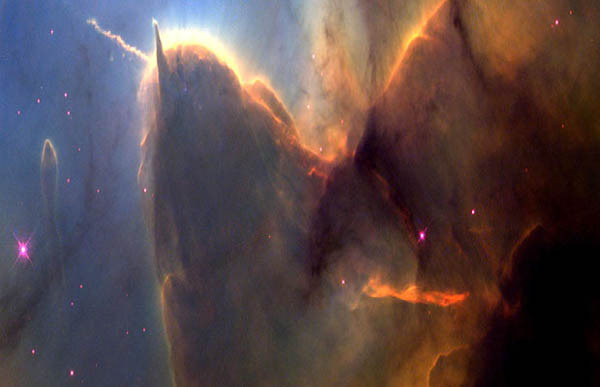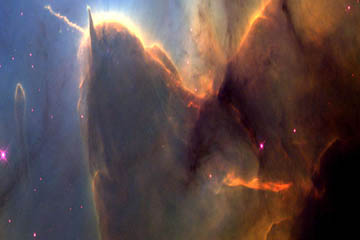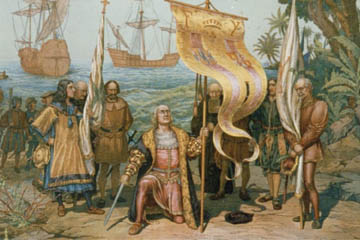
The Trifid Nebula / Photo: NASA
Barack Obama announced ambitious new space plans when he visited the Kennedy Space Center on April 15th.
His speech mentioned “a sequence of deep-space destinations” and “progressing step-by-step until we are able to reach Mars.” As I watched his speech, I couldn’t help but wonder if this will be the catalyst for a new age of space travel and human discovery, as happened on Earth five centuries ago.

